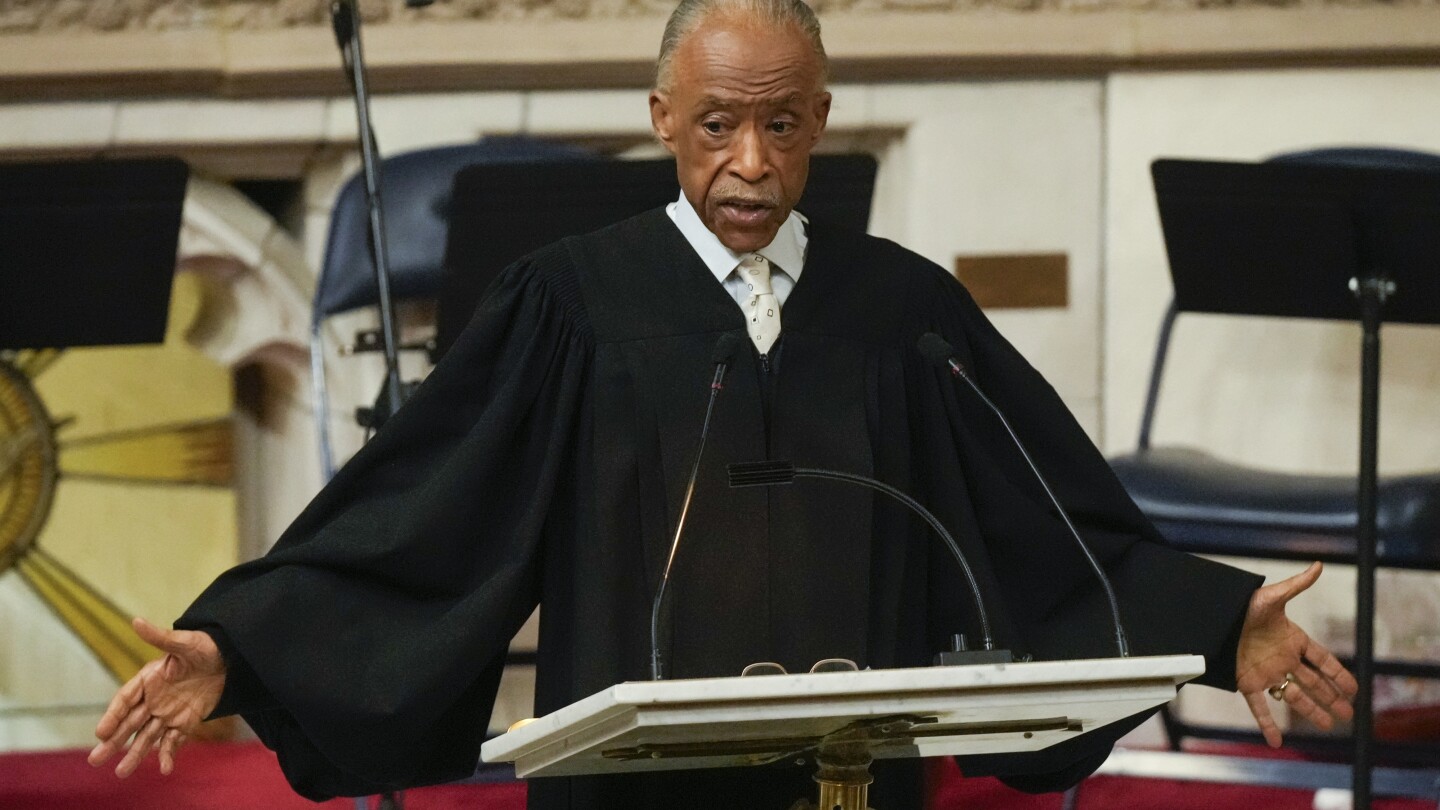The Rev. Al Sharpton recently engaged in what he called a ‘very constructive and candid’ meeting with Target CEO Brian Cornell amidst growing backlash against Diversity, Equity, and Inclusion (DEI) initiatives. This meeting, held at the National Action Network’s headquarters in New York, underscores the intense scrutiny and pressure companies face as they navigate the complexities of DEI in today’s sociopolitical climate. Target, like several other major corporations, has been under fire for scaling back its DEI programs, leading to boycotts and public outcry.
Sharpton’s engagement with Target’s leadership highlights a pivotal moment for corporate America. The decisions made in response to this backlash will not only define these companies’ commitment to DEI but also set a precedent for how businesses address social justice issues moving forward. This article delves into the details of the Sharpton-Cornell meeting, examines the broader context of DEI rollbacks, and explores the potential implications for Target and other corporations.
The Context of DEI Rollbacks: Why Now?
Target is not alone in facing scrutiny over DEI. Companies like Walmart, Amazon, and PepsiCo have also been criticized for eliminating or scaling back programs designed to promote diversity and reduce discrimination. This trend coincides with increasing political pressure, particularly from conservative activists and the Trump administration, which has actively targeted DEI initiatives within the federal government and educational institutions.
President Trump’s actions, such as ending DEI programs within the federal government and warning schools to do the same, reflect a broader effort to dismantle DEI efforts. The legal challenges and public debates surrounding DEI highlight the contentious nature of these policies and the significant resistance they face in certain sectors.
PepsiCo’s DEI Stance: Another Flashpoint
Al Sharpton’s engagement extends beyond Target. He recently met with PepsiCo CEO Ramon Laguarta and Steven Williams, the CEO of PepsiCo North America, to clarify the company’s stance on DEI. This meeting was prompted by concerns that PepsiCo might be scaling back its DEI commitments due to pressure from right-wing activists. Sharpton gave PepsiCo three weeks to address these concerns or face a potential boycott, underscoring the urgency and seriousness of the matter.
These interactions highlight the precarious position many corporations find themselves in. Balancing the demands of various stakeholders while remaining committed to social responsibility requires careful navigation and transparent communication. The outcomes of these discussions with Target and PepsiCo will likely serve as a bellwether for how other companies approach DEI in the current environment.
Boycotts and Consumer Activism: A Growing Trend
The threat of boycotts looms large for companies perceived to be backtracking on DEI. Several retailers have faced organized consumer activism in response to their decisions to scale back diversity initiatives. These boycotts reflect a growing trend of consumers holding corporations accountable for their social and ethical practices. The success of these campaigns can significantly impact a company’s bottom line, making it imperative for businesses to carefully consider the potential consequences of their actions.
Target’s earlier announcement on January 24, stating its intention to conclude DEI goals and cease external diversity surveys, sparked immediate backlash. This decision, coupled with the evaluation of corporate partnerships, raised concerns about the company’s long-term commitment to diversity and inclusion. The ongoing pressure from consumer groups and civil rights organizations underscores the importance of maintaining transparent and consistent DEI policies.
National Action Network’s Role: A Civil Rights Perspective
The National Action Network (NAN), under the leadership of Al Sharpton, plays a pivotal role in advocating for DEI and holding corporations accountable. NAN’s involvement in these discussions with Target and PepsiCo highlights the organization’s commitment to ensuring that companies uphold their pledges to diversity and inclusion. Sharpton’s consultation with NAN board members over the Easter holiday to determine next steps with these companies reflects a strategic and coordinated approach to addressing DEI concerns.
NAN’s efforts extend beyond individual meetings. The organization actively monitors corporate policies and engages in public advocacy to promote DEI across various sectors. By leveraging its influence and mobilizing consumer support, NAN seeks to create a more equitable and inclusive business environment.
Implications and Future Steps for Target and Beyond
The decisions made by Target and other corporations in response to the DEI backlash will have far-reaching implications. These actions will not only define their commitment to diversity and inclusion but also influence how other companies approach social justice issues. The outcomes of the meetings with Al Sharpton and the National Action Network will likely set a precedent for corporate accountability and consumer activism.
Moving forward, it is crucial for companies to engage in open and transparent dialogue with stakeholders, including civil rights organizations, employees, and consumers. Maintaining consistent and robust DEI policies, coupled with clear communication, can help mitigate potential backlash and foster a more inclusive and equitable business environment. The ongoing scrutiny and pressure underscore the importance of prioritizing social responsibility and ethical practices in corporate decision-making.
Conclusion
The meeting between Al Sharpton and Target CEO Brian Cornell marks a critical juncture in the ongoing debate over DEI in corporate America. As companies face increasing pressure from various stakeholders, their responses will not only shape their own reputations but also set a precedent for how businesses address social justice issues. The decisions made by Target and other corporations in the coming weeks and months will be closely watched and scrutinized.
Ultimately, the success of DEI initiatives hinges on a genuine commitment to creating a more equitable and inclusive environment. Companies that prioritize social responsibility and engage in transparent dialogue with stakeholders are more likely to navigate the complexities of DEI and foster long-term success. The ongoing pressure from consumer groups and civil rights organizations underscores the importance of maintaining robust DEI policies and upholding pledges to diversity and inclusion.

Leave a Reply